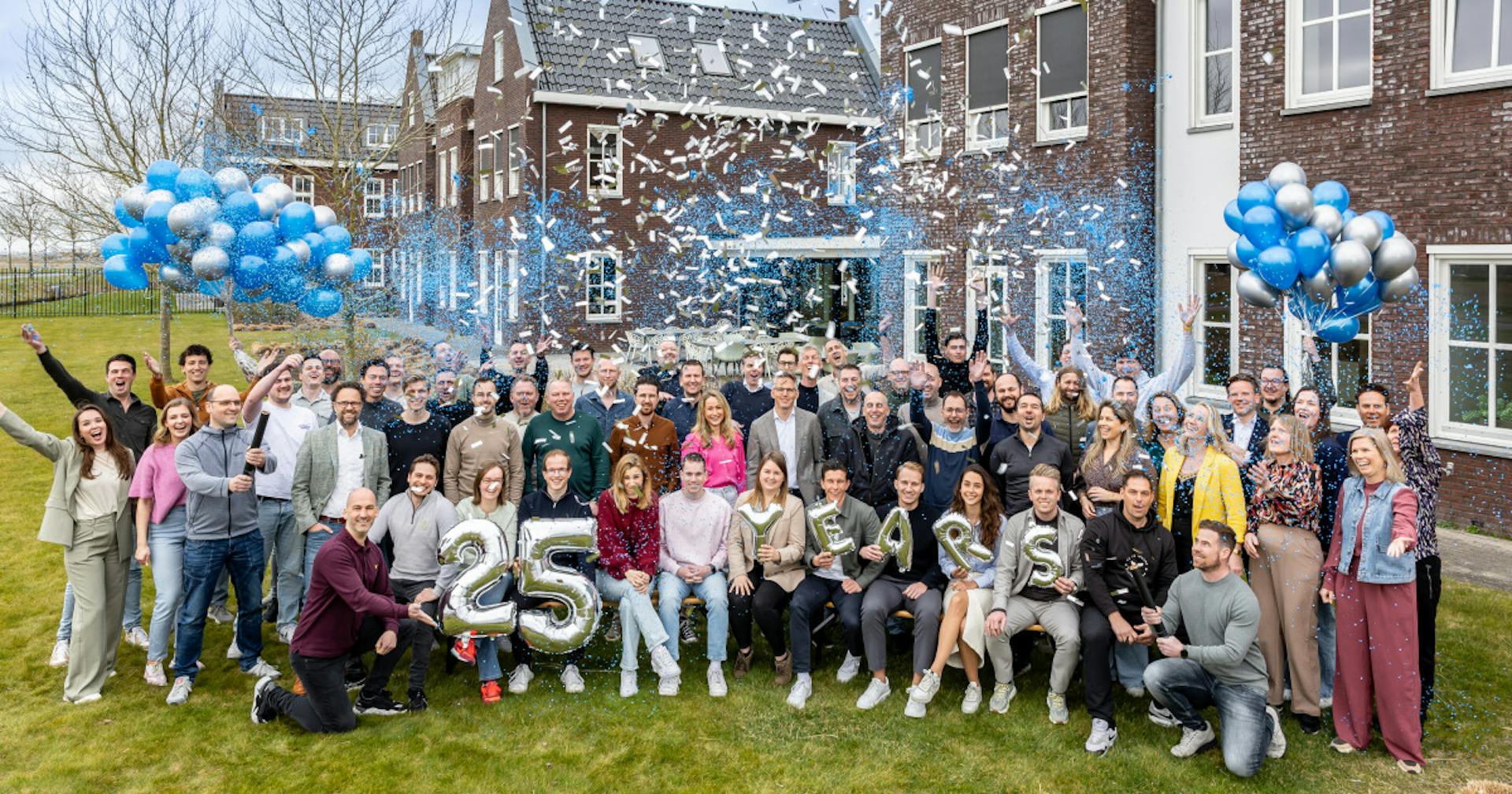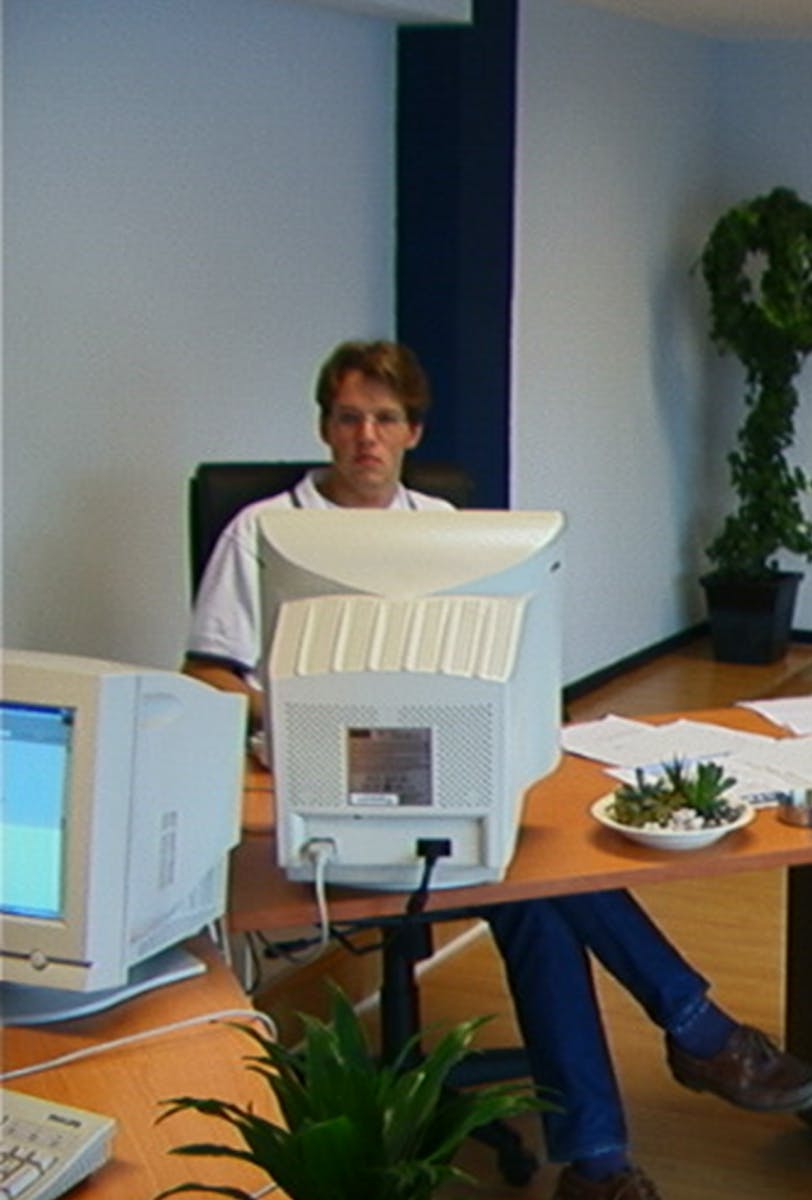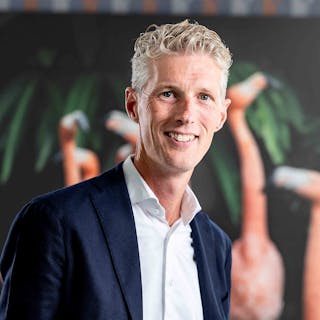25 years of entrepreneurship in a world that never stops changing
25 years ago, we started XSARUS out of curiosity. About the internet, about technology, about what was possible. Now, a quarter of a century later — with hundreds of colleagues, customers and partners along the way. But that same curiosity remains. In this personal story I look back on the journey that entrepreneurship turned out to be. And ahead, at the crossroads we once again stand at: AI, technology — and the role of people. About falling, getting back up, keeping your course, and travelling together.
The journey
An old sailor’s saying goes: “Whoever never leaves, never arrives.” Entrepreneurship is a journey. We began ours as students in Delft. Linear algebra by day, student association by night. We read books, talked about technology, attended philosophy of science lectures from Prof. Dr. Ir. E. Schuurman. And late nights out with housemates.
Curiosity about the possibilities of the internet made me learn to code. In your mind, you were an inventor, but by day you were stuck doing matrix multiplications. In the student house, each of us would, in turn, connect to the internet via a dial-up connection — an adventure in itself. For me, it was also a time of learning mountaineering, sailing, navigation. Pioneering. The brand-new internet felt like an undiscovered continent – and it called to us. Augustine already said it in the 4th century: “The world is a book. Those who do not travel read only one page.” So, we set out on our journey.
What remains, when everything changes?
At first, close to home: building simple websites in a little shop space in Middelharnis. Then web applications. First for small entrepreneurs, later for government agencies and A-brands. But it remained a journey of discovery. From a web developer to a true specialist in digital commerce. 25 years of taking a few steps forward, then again a step back. Making mistakes, learning. We have a jaw of steel from falling so much. Sometimes it feels as though you’re entering an unknown land where you don’t speak the language – literally: a new programming language, a new AI framework, a new tool. Or an entirely new and unfamiliar customer context.
For an entrepreneurial spirit, it’s quite tough to really leave that part of your organisation marching steadily alone. It’s a search for balance between consolidating and innovating. But also between being progressive and making money.
It’s such a different journey from school. The destination often unknown. It’s not about what you can do, but who you know. Not about skills, but most of all about mindset. After 25 years, I dare say: the more mistakes you make, the better. I didn’t learn that in lectures, but in all those part-time jobs as a youth. I hope younger generations keep doing that too: just getting your hands dirty, sweating and pushing through.
Not a company, but a fellowship
We began this adventure with a small group. Along the way, the group grew larger. What a privilege to travel with so many people. A vibrant group, but always a team. In practice, it has been proven: “You go faster alone, but further together.”
That’s something we’ve been given – not our achievement. We did it together. Everyone got out of bed to build amazing things for our customers, but also to learn. I’m not proud of myself, but of the collective. Of how everyone contributed. And that wasn’t always easy. Along the way, we kept having to re-form the travelling companions. Who’s the vanguard? Who’s the navigator? Who are the engine block? Who steps in when systems jam? Who trains new team members? In every phase, choices had to be made. Show courage. Sometimes cut, sometimes build. Create new functions. Adjust structures. Open up new KPIs for discussion.
And always looking at yourself too. A good entrepreneur is not necessarily a good manager. Working on your company is something different to working in your company. Perhaps the greatest compliment for an entrepreneur is: “Nice to see you again — but things tick along just fine without you.” Nobody is indispensable. Thankfully.

There’s something in the air
Even more so: especially when you take a step back from operations, you feel it again. What’s in the air? Where is it all headed? There’s definitely something in the air.
AI as a new continent
In the late 1990s, every petrol station had XS4ALL and World Online CD-ROMs. Within a few years, computers all around the world were connected up. The internet became reality. And it changed everything. For 25 years, we built upon it. Our business, propositions, organisation. And once again, we’re witnessing such a tipping point. But maybe this time, with even more impact than back then.
Artificial intelligence is on the verge of fundamentally changing society’s structures. The promise has been there for years, but now technology and hardware have matured. AI is not almost here – it’s already here.
The intelligence of people and machines is merging. AI has become our sparring partner and accelerator. At XSARUS and FACTICX as well, it’s helping us generate ideas, speed up processes, and break through patterns of thought. Six years ago, we started with a separate digital marketing team, with a fully data-driven approach. Recently, we’ve rebranded this team under the new label ‘FACTICX’. Alongside facts, action, and Customer eXperience, you’ll find, of course, the vowels ‘AI’ right in there.
Writing, programming, analysing, researching – even in decision-making, AI already plays a role. You can ignore it, but then you’ll miss out. Whether you’re a digital agency, in e-commerce, run a training institute or lead an architecture firm. Jobs and tasks are going to disappear. First, the simple, repetitive tasks. Then, also the more intelligent, language-based, creative and intuitive ones. What still seems distinctly human now, might soon be just applicable logic. Once again, it feels like discovering a new continent. There are opportunities and risks. And so, human guidance remains crucial. AI supplies the power – humans provide the direction. AI is not the end point, but the starting point.
We’re living in a decade of questions, not answers. This calls for greater wisdom than 25 years ago. Does it call for sporty young people? Or for travel guides with grey hair?
How do we maintain control, authenticity, and responsibility in a world where AI does ever more? The questions are becoming more ethical – because the technological possibilities now seem virtually endless. Moral dilemmas are getting bigger. We still have debates ahead about how far AI’s autonomy may go, and who is ultimately responsible for the actions of an autonomous device.
We’re going to have to develop a moral compass. And as always: learn by trial and error. Does something like “artificial morality” exist? Ideally, business, science, society, and government will work together on ethical AI. And if we zoom out further: is humanity on the brink of improving itself? Or devaluing the values that really matter?
We used to rote-learn our tables, so later we could solve differential equations. We repeated grammar rules to master a language. There was more commercial instinct, more human contact. And no, not everything was better. The twentieth century produced some crazy ideas too. But it’s still a fair question: how well do we still grasp science when foundational skills are no longer practised? How autonomous will I still be? Will the machine soon be in control of academia? And could Einstein still have developed his theory of relativity by 2030?
We still discover valuable texts from the past. Written by real people, inspired, carefully worded, considered. But if, in the end, people no longer think for themselves, or can’t command the language to shape their thoughts… won’t future texts just be weak reproductions of what already existed? In that respect, there’s something at stake. The question looms: will we soon only be able to think in ‘prompts’?
What we need isn’t a perfect plan, but a willingness to experiment. Experimenting is the new skill. AI moves quickly – and so must we. AI transformation isn’t a technical project, but a human and organisational issue. It calls for a different way of working and seeing. It’s a mindset.
AI is becoming ever more woven into our lives and work. AI dependency is growing faster than we realise. We’ll have to relate to it. With both hands – and a critical mind. Denial is not an option. And at the same time, it’s still unclear exactly what lies ahead for us.
I see colleagues searching, trying, asking questions. How do we bring our company into this new world? Will the professions of programmer, designer, marketer, consultant still exist in five years’ time? Will we do things differently? Or do different things? And are those questions about the whole world – or mainly about our privileged part of it? I was recently with MAF in Uganda and South Sudan. Saw poverty and the suffering of war. Then you return to the Western bubble and think: “Honestly, what are we actually fussing over here?” That experience put everything in a different perspective.
We’re not home yet
I think back to those lectures in Delft. The atmosphere of technology and reflection. Those late-night conversations. Let’s hold on to that spirit: curious, alert, willing to learn. Technology only moves in one direction – forward. The trick is: making sure people stay in control.
After 25 years, I look back with gratitude. To everyone I’ve met on the way: my co-founders, brother, our management team, colleagues, customers, partners.
25 years pioneering in digital change… We’re not home yet. But what a journey.





